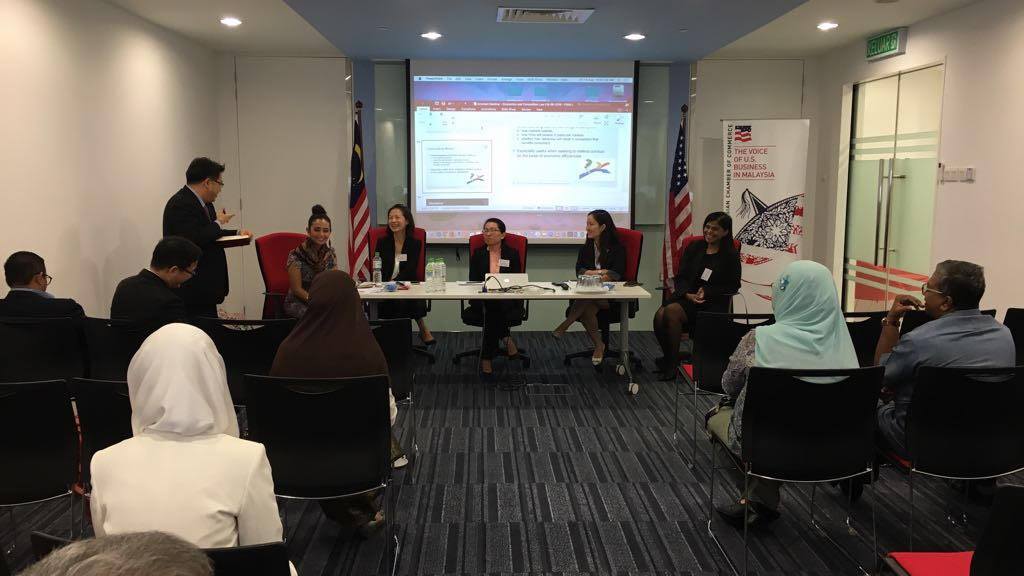
- This event has passed.
Competition and Economics
August 19, 2016 @ 10:00 am - 12:00 pm
Event Navigation

The Competition Law aims to create a fair business environment for organizations by promoting competition in the market and providing regulations that prohibit mergers that lessens competitions, anti-competitive agreements and abuse of a dominant position. The Competition Authority’s role is to protect the competitive process for the benefit of businesses, consumers and the economy.
Ms. Tanya Tang of Rajah & Tann kicked of this in-depth look at the Competition Law by giving an introduction on key points of the law and the work of the Competition Authority that engages in a balancing act, weighing the net effect between the anti-competitive effects of the conduct and benefits of the conduct. Should the benefits outweigh positively, the Competition Authority is able to provide an exclusion clause that allows an agreement to go though. Cooperation Agreements such as Airlines Agreements have been approved by the Authority as the airlines’ had been able to provide quantifiable data to substantiate that the respective alliances would be beneficial to customers.
Another point that Ms. Tang highlighted was how sellers are giving exclusive discounts and rebates to certain buyers. To ensure fair competition amongst the buyers, she went on to say, sellers should extend the discount and rebates to all their buyers. Exclusivity should not be practiced.
Ms. Tang moved on to the next topic of interest, the Most Favored Nation (MFN), which essentially involves a vertical agreement and is one of the cornerstones of the WTO trade law. With MFN status, the supplier commits to grant the distributor a price that is no less favorable than the prices granted to its other customers.
The speaker emphasized that a good understanding of economics and its tools provides more clarity on how markets operate, how firms behave in particular markets and whether their behavior will result in competition that benefits consumers. Competition Authorities fall back on economic tools to verify net benefits and competitive harm to protect consumers’ interest.
In ASEAN countries, Thailand takes the lead as being the first country to enforce its Competition Law (1999), whereas countries such as Brunei, Cambodia, Laos and Myanmar have yet to enforce it. The panel of experts representing the ASEAN countries gave an overview of the Competition Law in their respective countries and shared the similarities and differences of how the Competition Authority carried out its role. Though they are located in the same region, they do not foresee a harmonization of the law amongst these countries, as each country is at a different level of expertise on Competition Law in addition to its own cultural, political and economic landscape.
They advised the audience to know their competition profile and their position in the market to ensure their competitiveness. As there is general lack of awareness on Competition Law, corporations should seek ways to increase awareness among their business heads and to play a more active advocacy role.
The session ended with a Q&A amongst the audience.
AMCHAM would like to thank the main speaker Ms Tanya Tang (Rajah & Tann,, Singapore) and members of the panel, Fong Chuen Fuen (Malaysia Competition Commission) Vu Thi Que (Rajah & Tann, Cambodia), Kala Anandarajah (Rajah & Tann, Singapore), Anastasia Pritahayu R. Daniyati (Assegaf Hamzah & Partners, Indonesia) who gave a regional perspective of the Competition Law and Patrick Tay (PwC, Malaysia) who mediated the event.



